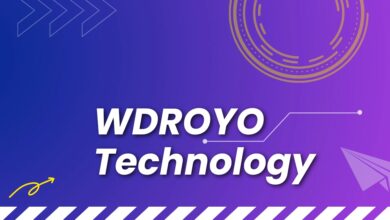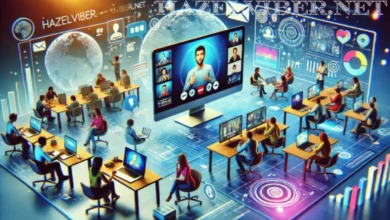The Rise of Social Media Lawsuits: Understanding the Implications of a Digital Age
The Rise of Social Media Lawsuits: Understanding the Implications of a Digital Age

The Rise of Social Media Lawsuits: Understanding the Implications of a Digital Age
The Rise of Social Media Lawsuits In recent years, the intersection of social media and the law has become increasingly fraught with tension, leading to a surge in social media lawsuits. From defamation claims to privacy violations, the complexities of the digital age are sparking legal disputes that challenge our understanding of free speech, personal rights, and corporate responsibility. This article explores the causes, implications, and potential future of social media lawsuits.
The Social Media Landscape
Social media platforms have revolutionized communication, allowing individuals and organizations to share their thoughts, images, and experiences with a global audience at unprecedented speeds. While this democratization of information has empowered users, it has also given rise to a host of legal issues. As people increasingly turn to platforms like Facebook, Twitter, and Instagram to express themselves, the line between personal expression and legal liability becomes blurred.
Common Types of Social Media Lawsuits
1. Defamation Cases
One of the most prevalent types of social media lawsuits involves defamation. When a user posts false information that damages another person’s reputation, it can lead to legal action. Public figures, in particular, face unique challenges in proving defamation, as they must demonstrate “actual malice,” or that the false statements were made with knowledge of their falsity or reckless disregard for the truth. This legal standard complicates matters, especially in an environment where opinions can be shared and amplified rapidly.
2. Invasion of Privacy
Social media users often share personal information without fully understanding the implications. This can lead to claims of invasion of privacy when someone discloses sensitive information about another person without consent. Whether it’s through unauthorized sharing of private messages or leaking personal details, these violations can result in lawsuits that highlight the need for users to be cautious about what they share online.
3. Harassment and Cyberbullying
The anonymity afforded by social media can embolden individuals to engage in harassment and cyberbullying. Victims of online harassment often seek legal recourse, prompting lawsuits against perpetrators or even social media platforms for failing to adequately address harmful behavior. As platforms evolve, so too do the laws surrounding them, with increasing scrutiny on how effectively they manage user-generated content.
4. Intellectual Property Violations
The sharing culture of social media can lead to unintentional violations of intellectual property rights. When users post content that they do not own or for which they lack permission, they risk infringing on copyright laws. Artists, photographers, and writers are increasingly turning to the courts to protect their work, leading to a rise in lawsuits aimed at social media users and platforms alike.
The Role of Social Media Companies
Social media companies are not exempt from legal scrutiny. Platforms are often held accountable for the content that users post, particularly when they fail to remove harmful or illegal material in a timely manner. This responsibility can lead to lawsuits claiming negligence, as users argue that the platforms did not uphold their duty to maintain a safe online environment.
In response, social media companies have developed various policies and guidelines to mitigate legal risks, including content moderation and reporting mechanisms. However, these measures are often criticized as being either insufficient or overly restrictive, raising ongoing debates about free speech versus the need for a safe online space.
The Impact of Legal Action on Social Media Users
For individual users, the threat of a social media lawsuit can be daunting. Many users lack the legal knowledge necessary to navigate the complexities of digital communication, which can lead to unintentional legal pitfalls. Moreover, the financial and emotional toll of legal battles can deter users from expressing themselves online, stifling creativity and open discourse.
As legal standards evolve, users must be aware of their rights and responsibilities. Educating oneself on topics such as defamation, privacy, and intellectual property is essential for anyone looking to engage meaningfully in the social media landscape.
Future Implications and Trends
The rise of social media lawsuits signals a broader trend towards accountability in the digital age. As users become more aware of their rights, there is a growing demand for clearer guidelines and regulations governing online behavior. Legal systems worldwide are beginning to adapt to the challenges posed by social media, with some jurisdictions proposing legislation aimed specifically at protecting users from harassment and misinformation.
Additionally, the emergence of artificial intelligence and algorithm-driven content raises new questions about liability and responsibility. As algorithms increasingly dictate what content users see and engage with, The rise of social media lawsuits the potential for legal action against social media companies will likely expand.
Conclusion
The increase in social media lawsuits reflects the growing pains of a digital society grappling with the implications of free speech, privacy, and responsibility. As users, companies, and lawmakers navigate this complex landscape, understanding the legal ramifications of social media use becomes imperative. With ongoing developments in technology and law, the dialogue surrounding social media and its consequences is far from over. The Rise of Social Media Lawsuits Awareness and education will be key in shaping a healthier online environment where users can express themselves freely while respecting the rights of others.




